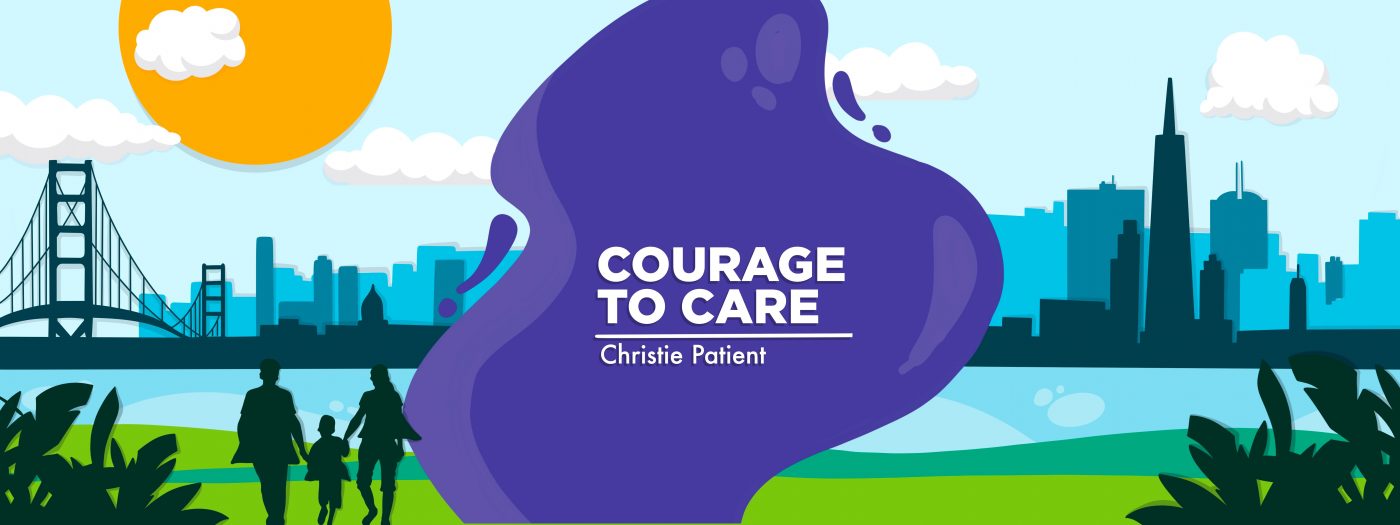Caregiving Was a Catalyst to Telling Rare Disease Stories

I have several roles here at Bionews, the parent company that publishes Pulmonary Fibrosis News and other rare disease websites. I started with this humble column and eventually joined the forums team as a co-moderator.
My most recently acquired title is “columns lead,” in which I manage and mentor several fellow columnists who write for our many rare disease websites. It’s exciting and rewarding to help columnists grow as they share their own rare disease stories. We talk about big ideas, and I get to help them build meaningful and vulnerable narratives.
I love the collaborative effort of storytelling that we share. And my student loans feel like less of a burden when my writing degree is put to good use.
When I graduated college in 2015, I applied for dozens of jobs and internships. I interviewed for everything I could find, from writing marketing copy for vitamins to editing local news. Some jobs I wasn’t qualified for, and others seemed like a perfect fit. (Reviewer of backpacking gear? Perfect! Alas, I didn’t get the job.)
I didn’t take any of those jobs because none of them — except the backpacking gear reviewer, of course — felt sustainable, exciting, or in line with my goals and personality. I began to wonder if my writing degree really was as pointless as some of my school peers had suggested. But I want to tell stories that matter, not sell products from the confines of a cubicle.
I spent years after graduating college feeling utterly lost and without a purpose. I became a painting instructor and a bartender. I worked summer weekends as an assistant to a wedding photographer. I taught art classes at the Boys and Girls Club of America. I tutored elementary students. I tried to monetize my creative hobbies and collected sporadic income from craft fairs and Etsy.
Meanwhile, I kept a daily journal and took photos to chronicle my life, even when it felt aimless.
When my husband, Jonny, turned his post-college blues into a contract with the Army, I felt more lost than ever. He had done something concrete in the face of disillusionment, and I still had no idea what I was doing. A year of depression followed as I watched every Vlogbrothers video ever made on YouTube.
Somewhere in there, writer John Green shared a piece of advice from his mentor, author Amy Krouse Rosenthal: “For anyone trying to discern what to do with their life: Pay attention to what you pay attention to. That’s pretty much all the info you need.”
I wish I had paid attention to that. Because along with Hank and John Green’s videos, I was paying attention to disabled bloggers, documentaries about rare diseases, artists, photographers, LGBTQ creators, videos about medical diagnostics, surgeries, psychology, books by Oliver Sacks, and so many memoirs and blogs I can’t even count.
The things I was paying attention to then are things I’m still paying attention to now: people’s stories. They’re often marginalized people’s stories, stories about survivors and thrivers, and the extraordinary way that regular people face challenges. All the information I needed about what to do with my life has always been right in front of me.
Being hired as a columnist three years ago put my life on a trajectory I never expected. I wasn’t paying attention to what I was paying attention to, but I seemed to have gotten lucky. My friend Kathleen saw potential in me and connected me with an opportunity.
Today, I’m not just casually interested in rare diseases, medical mysteries, and the stories of disabled folks, I’m involved in these communities and working to bring these stories to a broader audience. The storytellers are my colleagues and friends, and I’m proud to be an ally to them. I love learning from them and advocating alongside them.
When I was plunged into the rare disease world as a caregiver for my mom, Holly, I never imagined the ways the experience would change my life. It forced me to grow and has helped me to live a life of purpose. I feel lucky that so much good has emerged from such a painful experience.
Being my mom’s caregiver was the first time I had a job that truly felt meaningful, but it was not the last.
***
Note: Pulmonary Fibrosis News is strictly a news and information website about the disease. It does not provide medical advice, diagnosis, or treatment. This content is not intended to be a substitute for professional medical advice, diagnosis, or treatment. Always seek the advice of your physician or other qualified health provider with any questions you may have regarding a medical condition. Never disregard professional medical advice or delay in seeking it because of something you have read on this website. The opinions expressed in this column are not those of Pulmonary Fibrosis News or its parent company, Bionews, and are intended to spark discussion about issues pertaining to pulmonary fibrosis.









Leave a comment
Fill in the required fields to post. Your email address will not be published.